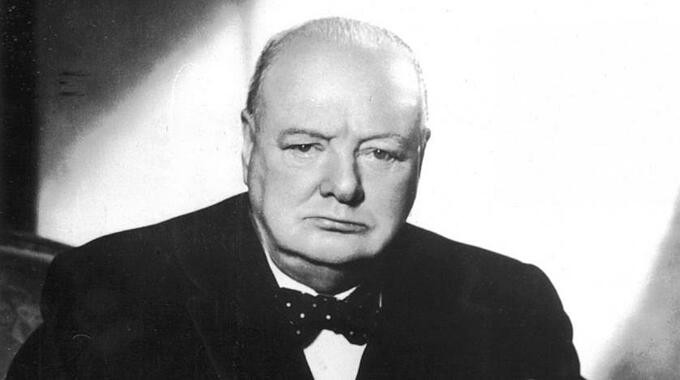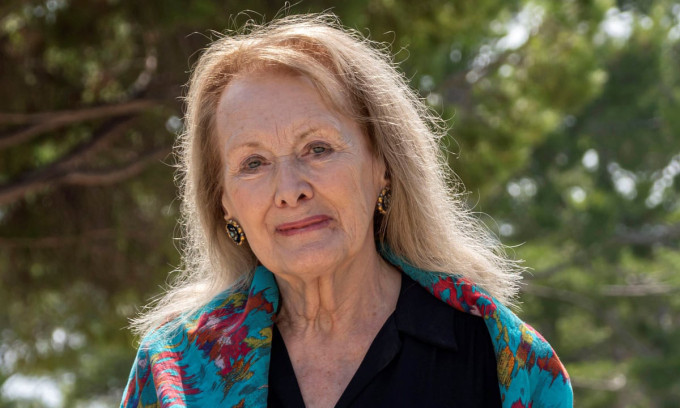Many people thought that the late British Prime Minister Winston Churchill would receive the Nobel Peace Prize, but he was awarded the Nobel Prize for Literature in 1953.

Former British Prime Minister Winston Churchill (1874-1965) received the Nobel Prize for Literature in 1953. Photo: AFP
The Nobel Prize in Literature will be announced by the Swedish Academy at 1 p.m. on October 7 (local time, 18:00 GMT).hour- Hanoi time). The winner receives a prize of 10 million Swedish krona (25.9 billion VND).
Since its inception in 1895 under the will of Alfred Nobel, the Nobel Prize in Literature has honored 117 individuals, including 111 male authors and 16 female writers. The first prize was awarded to French poet Sully Prudhomme in 1901. The first woman to win the prize was Selma Lagerlöf (1990). Five years later, she was elected to the Academy. Rudyard Kipling, author of The Jungle Book, was the youngest winner when he won the prize in 1970 (41 years old). British writer Doris Lessing was the oldest - 88 years old when she received the Nobel Prize in 2007. In 1931, the prize was awarded to Swedish poet Erik Axel Karlfeldt, who died a few months earlier. Since 1974, the foundation has stipulated that the prize can only be awarded to living people.
Jean Paul Sartre once refused all honors, because he believed that a writer should only use his own means - the written word. "All the titles he achieved could put readers under pressure, which I do not want," he wrote in his letter of refusal to the Academy.
According to the Swedish newspaper Svenska Dagbladet, his letter was sent on October 14, 1964, while the Academy had already decided on the winner on September 17. Had the letter arrived before September, the Committee could have managed to choose someone else. He won the prize for "a work rich in ideas, full of the spirit of freedom and the search for truth, which has had a profound influence on our time," according to the Academy's assessment.
Jean Paul Sartre was a French philosopher, playwright, novelist and political activist. He is best known for his books about his childhood, Words (1964), Nausea (1938), the plays Les Mouches (The Flies) and Huis clos (Behind Closed Doors)...

French writer Annie Ernaux is predicted to win the award.Nobel Prize this year. Photo: EPA
Many of his wins have come as a surprise to the public. Many believed that the late British Prime Minister Winston Churchill would receive the Nobel Peace Prize, but he was awarded the Nobel Prize for Literature in 1953 for his excellent biographies and his speeches defending noble human values. From 1945 to 1953, he received 21 nominations. Each vote of the members counted as a nomination. In 1950 alone, he was voted for by six members of the Council.
In 2016, singer-songwriter Bob Dylan was honored, causing dissatisfaction among many writers and poets. Novelist Jodi Picoult said: "I'm happy for Bob Dylan, but does that mean I can win a Grammy too?". British scholar - Bertrand Russell - has many works related to philosophy, logic, mathematics but won the Nobel Prize for Literature in 1950.
The Academy never gives any indication of who might win until the announcement. The shortlist of nominees is revealed 50 years later. According to the list that has been revealed, Rabindranath Tagore, William Faulkner, Sully Prudhomme, Rudolf Eucken, Paul Heyse... have won the prize after a year of nomination. Karel Capek was nominated for a total of seven consecutive years (1932-1938) but never won. Vladimir Nabokov was shortlisted in 1974 but the prize went to two lesser-known authors - Harry Martinson and Eyvind Johnson. Four years after receiving the prize, Harry Martinson committed suicide under pressure from public opinion.
The Nobel Prize in Literature is based on the writer's entire career, but nine times the Academy has announced a specific work that has helped the author win the prize. In 1965, the prize went to Mikhail Sholokhov for Quiet Flows the Don, "a work of artistic power and integrity, with an epic tone, which represents a period in the history of the Russian people." In 1954, the prize went to Ernest Hemingway for his artistic innovations in The Old Man and the Sea.
Roger Martin Du Gard won the prize in 1937 for his depiction of human conflict in Les Thibault. John Galsworthy was honored in 1932 for his Forsyte Family Tales, which featured exceptional storytelling. Thomas Mann won the prize in 1929 for The Buddenbrooks, considered a classic of modern literature.
Wladyslaw Reymont won the prize in 1924 for his novel series The Peasants, which is considered the great epic of the Polish people. Knut Hamsun was the winner in 1920 for his monumental novel Growth of the Soil. Carl Spitteler won the prize in 1919 for his novel Olympian Spring. Theodor Mommsen was honored in 1902 for his historical literary series History of Rome.
The Nobel Prize in Literature is one of six Nobel Prize categories, awarded to authors from any country, according to the will of chemist Alfred Nobel. The Swedish Academy, founded by King Gustav III in 1786, is responsible for deciding on the Nobel Prize in Literature.
The award was interrupted in 1914, 1918, 1935, 1940, 1941, 1942 and 1943 because of the two world wars. According to the regulations, if there was no outstanding work, the prize money would be reserved for the following year. The medal, designed by Swedish sculptor Erik Lindberg, depicts a young man sitting under a laurel tree, mesmerized by the music of a muse. The certificate is a unique work of art, created by Swedish and Norwegian calligraphers.
According to VnExpress